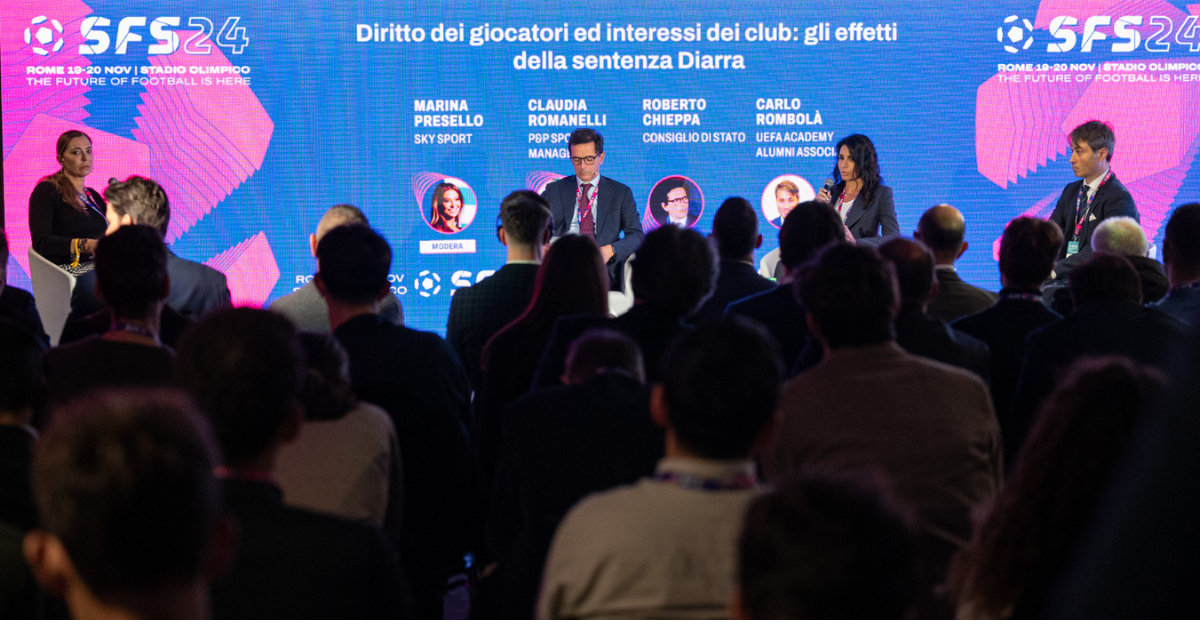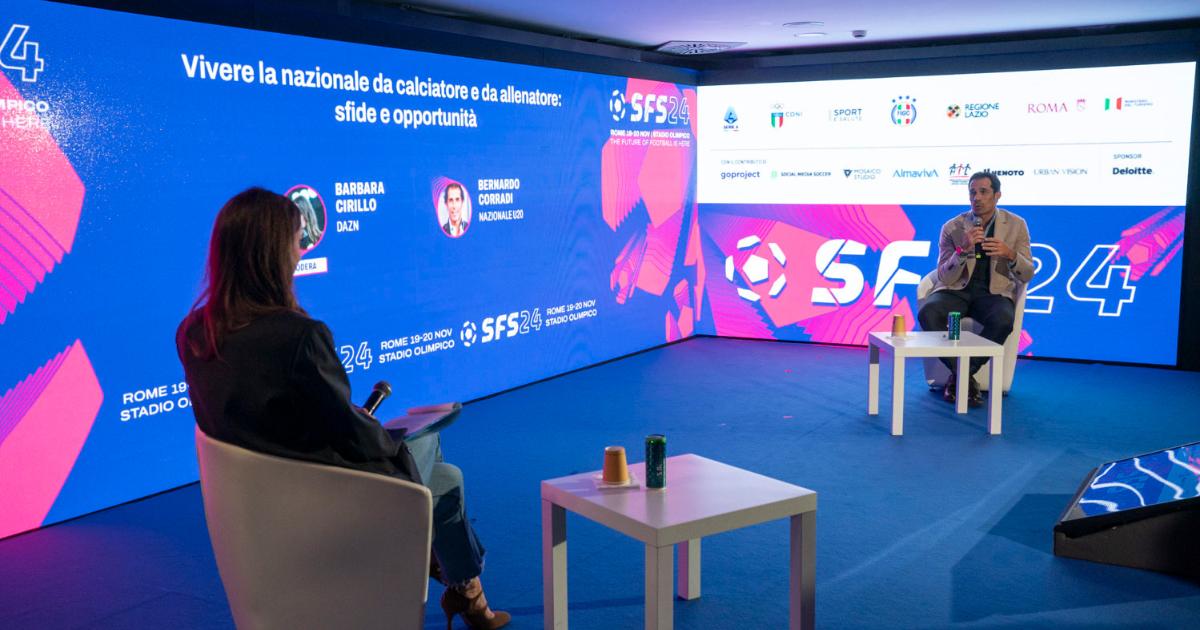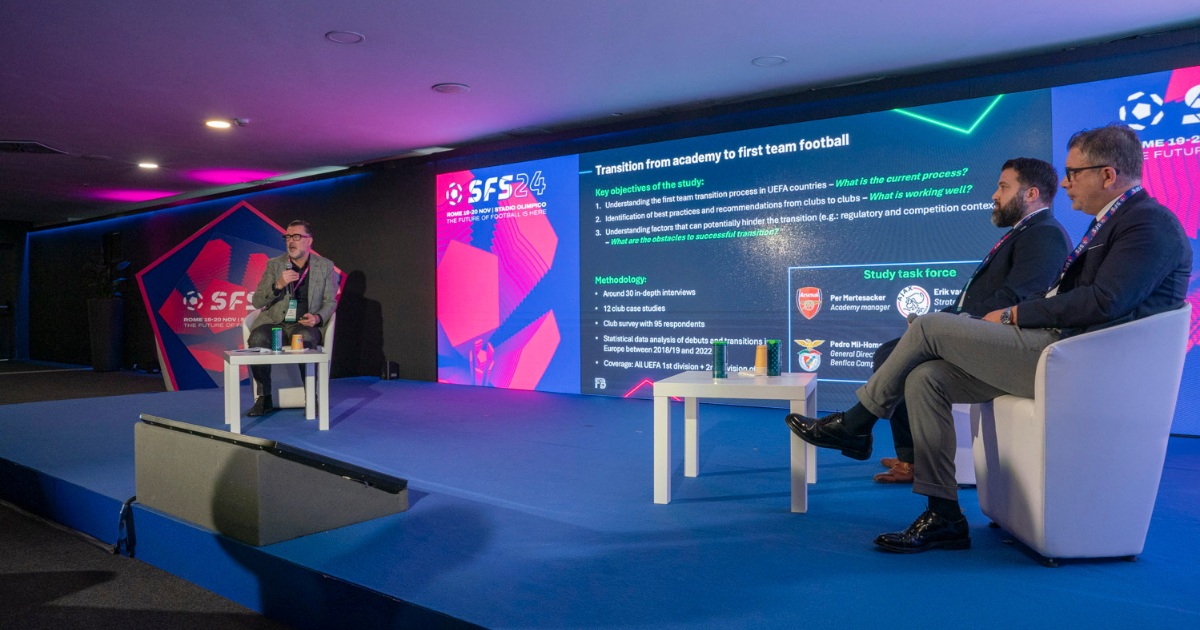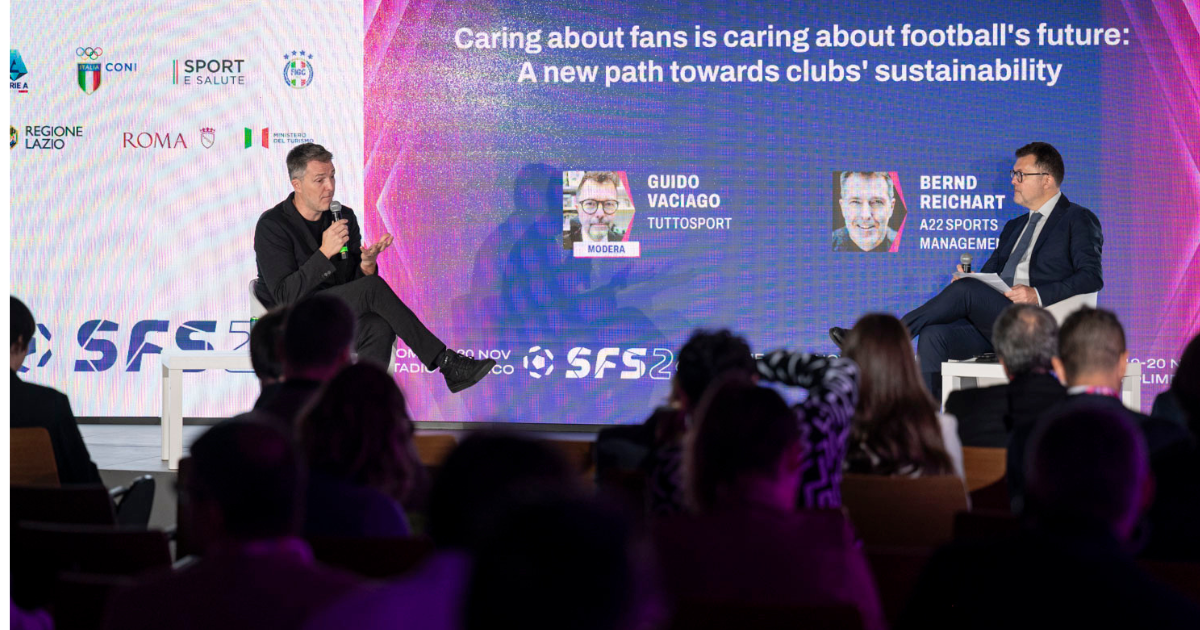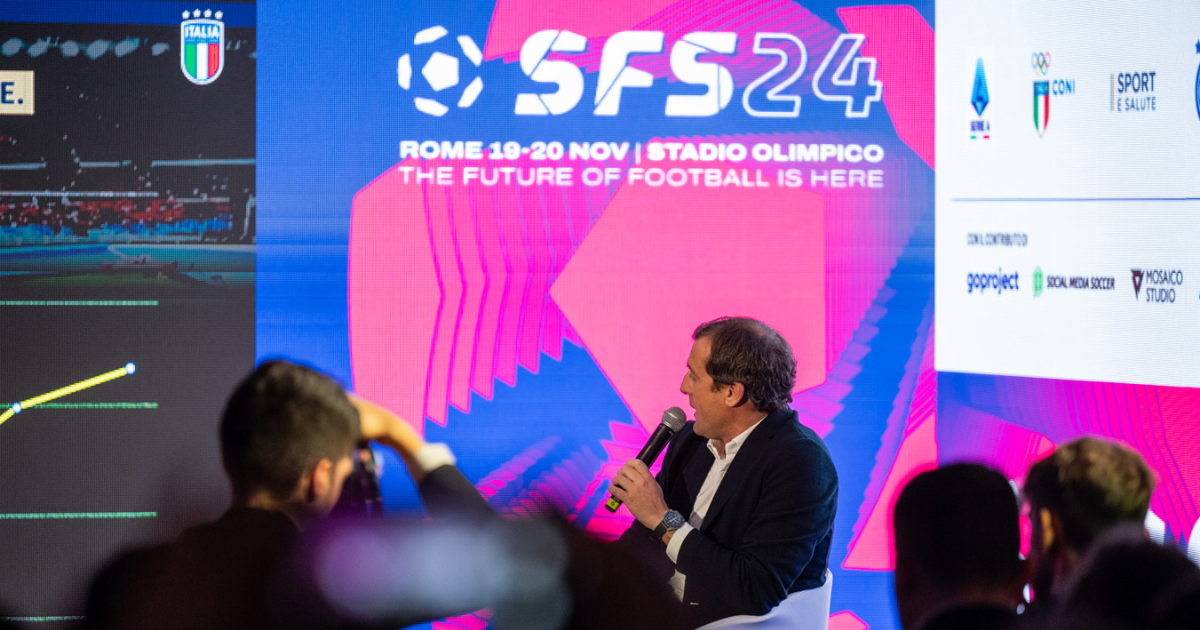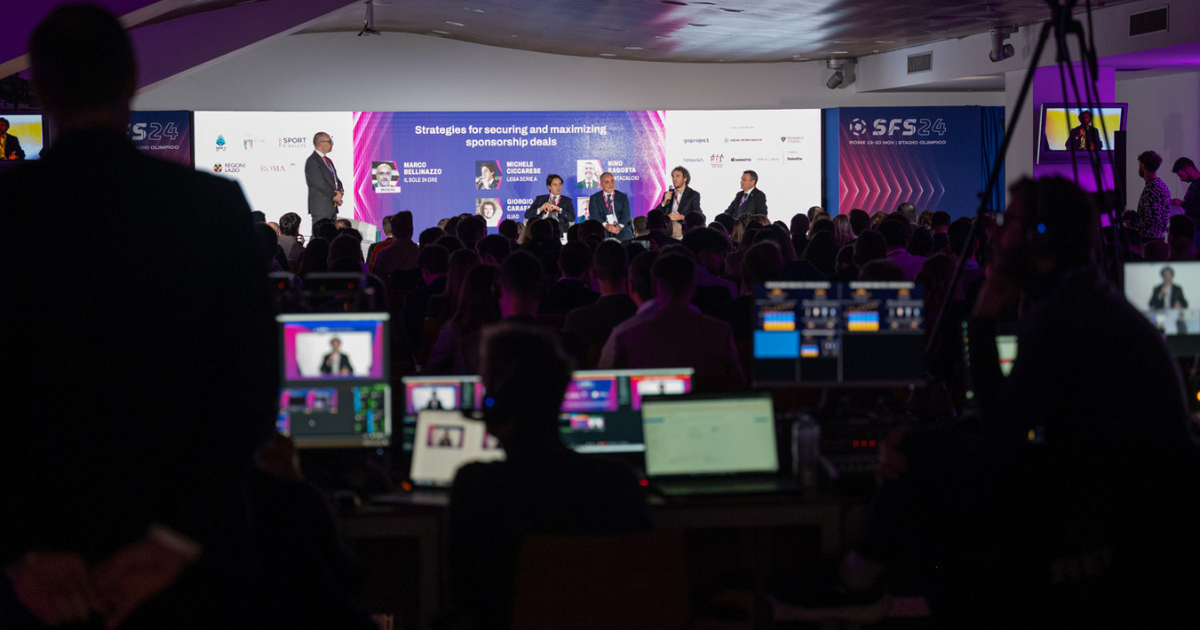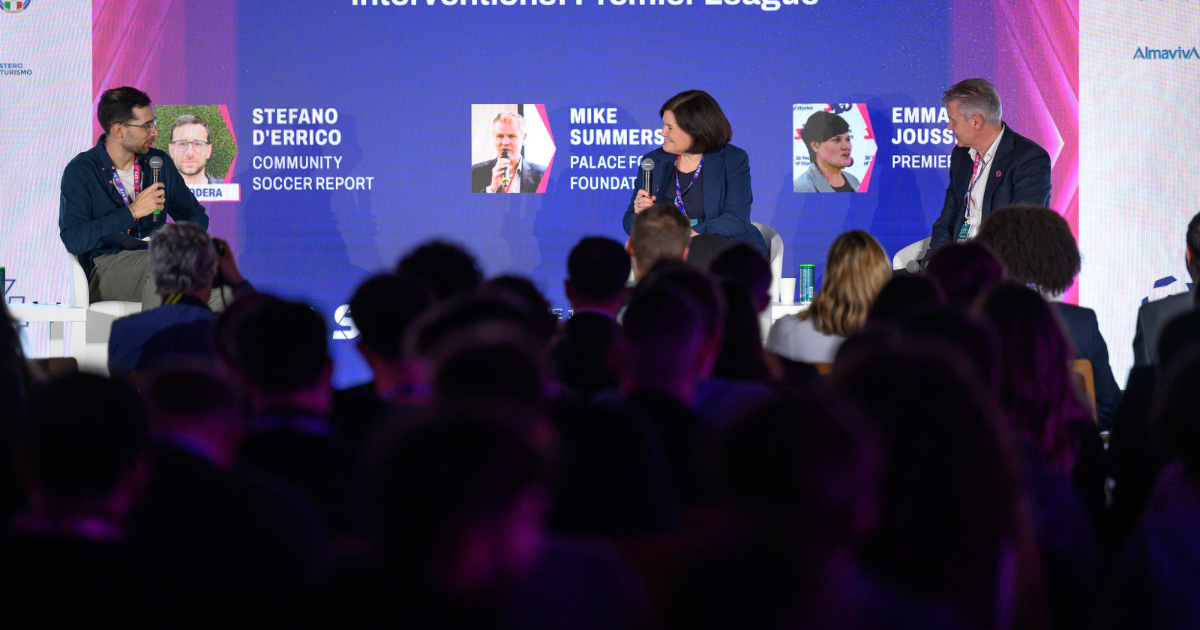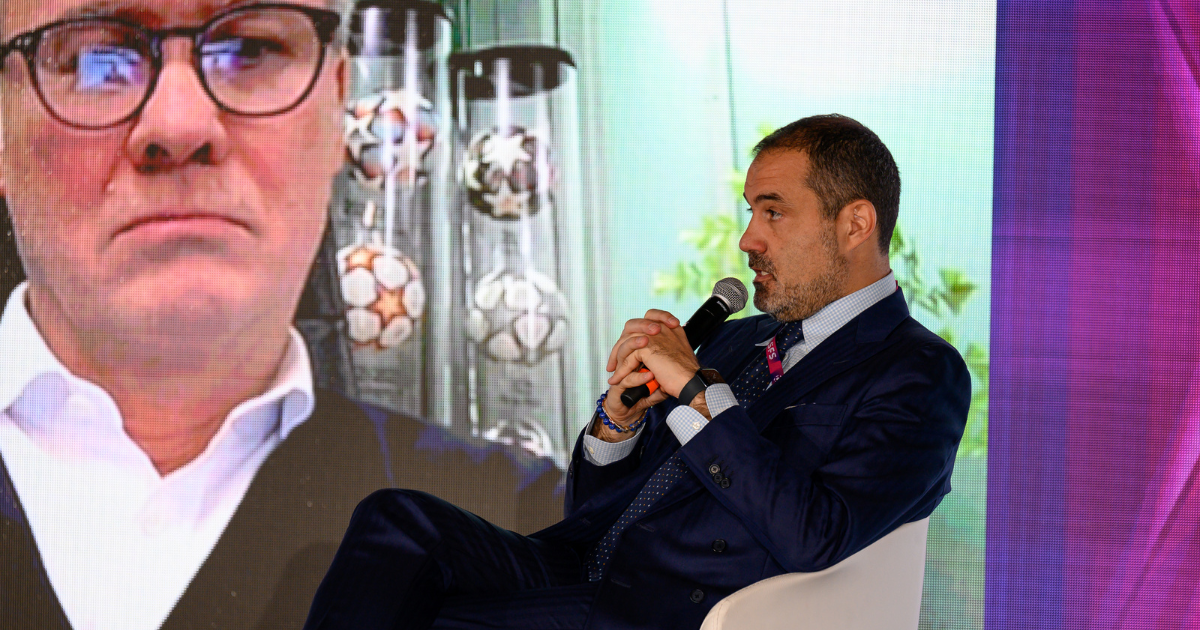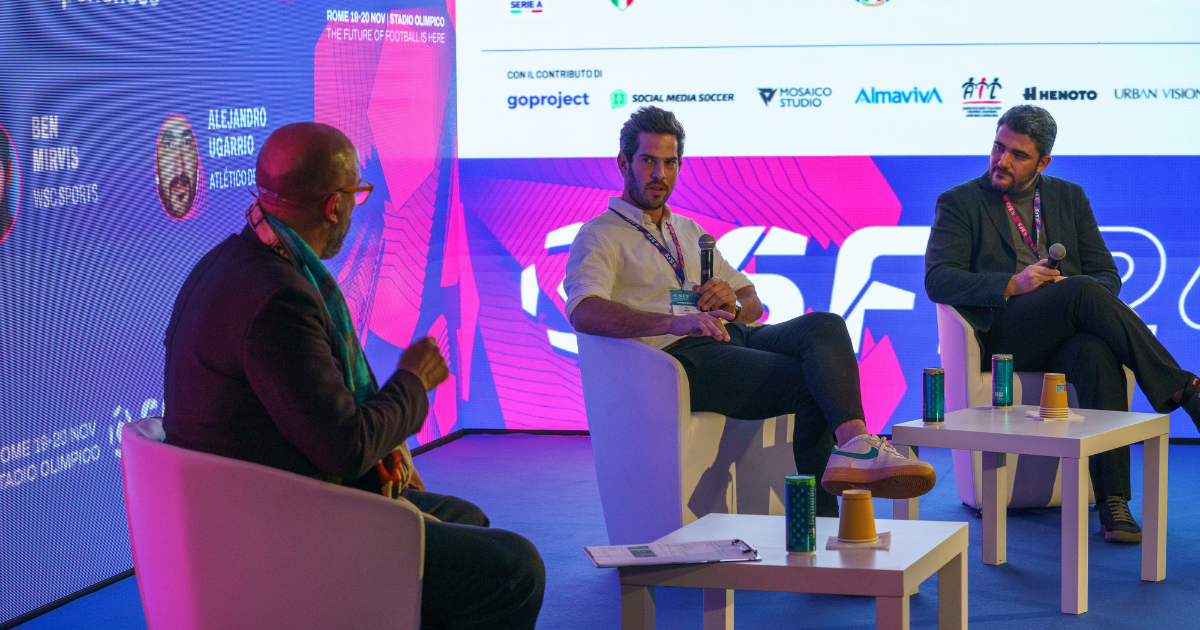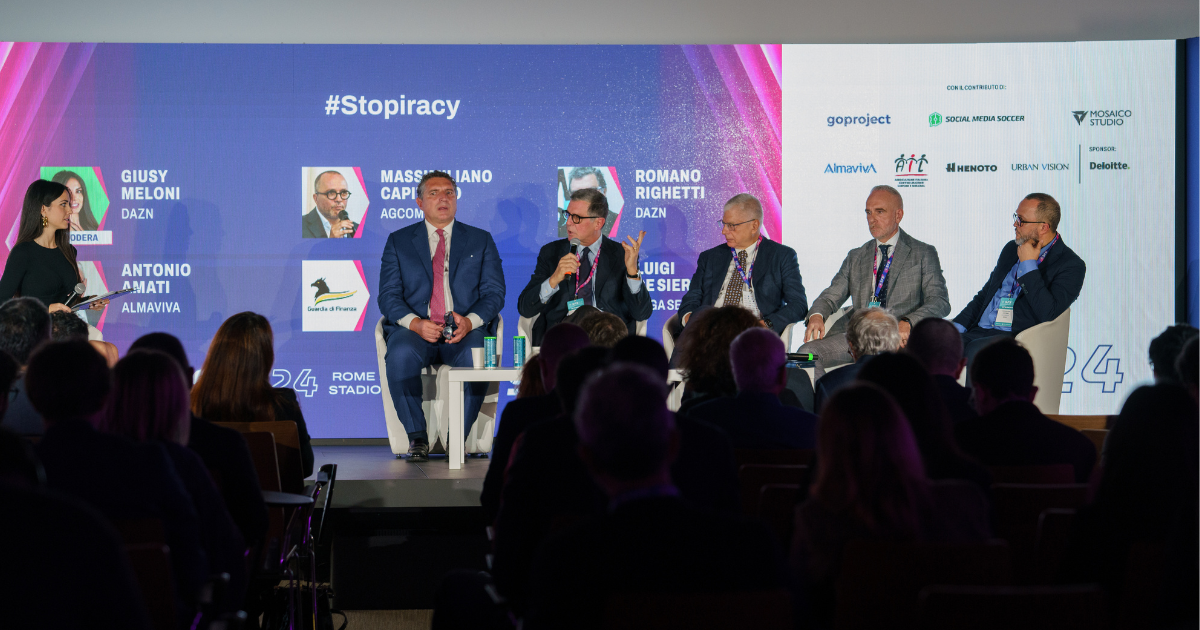Can a court judgement change the rules of the game?The panel “Players’ rights and club interests: the effects of the Diarra ruling” shed light on one of the most complex cases in modern sports justice, sparking new reflections on the balance between sports law and EU law. Moderated by Sky Sport journalist Marina Presello at SFS24, the panel featured Claudia Romanelli (P&P Sport Management), Roberto Chieppa (President of Section at Consiglio di Stato), and Carlo Rombolà (UEFA Academy Alumni Association).
Lassana Diarra, a former Lokomotiv Moscow player, is at the center of a case that began in 2014 and remains relevant today. After a dispute with the club, which led to a reduction in his salary, the player refused to attend training sessions. The club, citing article 17 of the FIFA Regulation, sought contract termination and compensation.
In 2015, the Court of Arbitration for Sport (CAS) ruled in favor of Lokomotiv, but the situation grew more complicated when the player attempted to transfer to the belgian club Charleroi. FIFA, applying article 17, held Charleroi and Diarra jointly liable for compensation amounting to €10.5 million. The case eventually reached the Court of Justice of the European Union (CJEU), which found article 17 incompatible with EU law, recognizing its conflict with the freedom of movement for workers and competition rules.
Roberto Chieppa suggested analyzing the legal case from a different perspective, stating: “The economic significance of the football industry makes the intersection between sports law and general law unavoidable. Football players are workers and, as such, are subject to European regulations”.
In some respects, the Diarra case recalls the landmark Bosman ruling of 1995, which revolutionized European football by allowing players within the EU to transfer freely at the end of their contracts and abolishing quotas for foreign players in EU clubs. However, during the panel, other precedents were also highlighted, such as the case of goalkeeper Morgan De Sanctis, who in 2007 secured unilateral release from Udinese under article 17, transferring to Sevilla with €2.5 million in compensation.
Carlo Rombolà added: “For the future, there are two possible scenarios: either the parameters of Article 17 will be redefined, or we will witness a profound change in the status quo. However, a complete overhaul is unlikely, given the shared nature of the agreements between FIFA, UEFA, and the European Commission”.
But what would happen if a similar case arose in women’s football? According to Claudia Romanelli, “As of today, it is unlikely, at least in Italy, due to economic and social reasons. Collaboration between clubs is much more evident in women’s football, with a less confrontational approach”.
The panel concluded with a reflection on the impact of court rulings on the world of football. On the one hand, sports regulations must adapt to general legal principles. On the other, it is essential for football to organize itself to face these challenges through solidarity-driven projects and innovative governance. As the President of Section at Consiglio di Stato emphasized: “It is essential to find a balance between sports and legal requirements because only with good governance can football continue to grow and thrive”.
In short, the Diarra case is not just a complex legal dispute but a symbol of the challenges modern football must tackle in an increasingly regulated global context.
The Diarra Case and Sports Justice: Football Between Courts and International Regulations
Can a court judgement change the rules of the game?The panel “Players’ rights and club interests: the effects of the Diarra ruling” shed light on one of the most complex cases in modern sports justice, sparking new reflections on the balance between sports law and EU law. Moderated by Sky Sport journalist Marina Presello at SFS24, the panel featured Claudia Romanelli (P&P Sport Management), Roberto Chieppa (President of Section at Consiglio di Stato), and Carlo Rombolà (UEFA Academy Alumni Association). Lassana
“Playing for Italy is a privilege and a responsibility”, said Bernardo Corradi at SFS24
During SFS24, the event that annually brings together experts and key players in the football industry to discuss its evolution, Bernardo Corradi shared his experiences from past to present, retracing his journey from being a National Team player to coaching Italy’s U-20 side. Moderated by DAZN journalist Barbara Cirillo, the panel offered an insightful reflection on the modern role of a coach and the importance of communication and personal growth for young players. With 246 Serie A appearances, 56 goals, and
Youth Academies: The Foundation of Success in Modern Football
The Future of Football Lies in Youth Academies. This was the key takeaway from the panel "The Future of Football: Growth and Development of Youth Academies" at the SFS, where top experts discussed the transition from academies to the first team, delving into its challenges, opportunities, and best practices. Among the speakers were Pouya Yaghoubinia (Development Manager, ECA), Andrea Sartori (CEO & Founder, Football Benchmark), and Federico Cherubini (Senior Football Advisor and former Juventus executive). How is the success of a
SFS24: SUPERLEAGUE, SUSTAINABILITY, AND THE FUTURE OF FOOTBALL
The debate around the Superleague has never truly faded. Over the past three years, football has been at the center of a clash between opposing visions: on one side, the “football of the people”, and on the other, the “football of the rich”. But is it really so easy to draw a line between good and bad? Probably not, and this is one of the reasons why the future of football remains a divisive topic, with generations confronting each other
FIGC and a new communication paradigm
Among the many panels featured at SFS, the one with Giovanni Valentini – Chief of the Revenue Area and Deputy Secretary-General of the Italian Football Federation (FIGC) – focused on the evolution of communication strategies within the FIGC in recent years. The discussion, moderated by DAZN journalist Barbara Cirillo, provided an in-depth look at the paradigm shift initiated in 2018 following Italy's failure to qualify for the World Cup. The objective was clear: to revive the national team’s appeal and reach
SFS24: Innovation and Strategic Partnerships for the Future of Italian Football
During the SFS24, one of the most followed panels explored the state of Italian football, highlighting its ability to adapt and its potential to create value. Moderated by Marco Bellinazzo, journalist for Il Sole 24 Ore, the discussion featured experts such as Mario Ferro (Head of Marketing & Retail Services Eni Live), Giorgio Carafa Cohen (Chief Brand and Revenues Officer Iliad), Nino Ragosta (CEO Fantacalcio), and Michele Ciccarese (Commercial & Marketing Director Lega Serie A). Italian football is at a crossroads,
The Social Value of the Premier League: Clubs and Local Communities at the Core
The Premier League is much more than just a football league: behind its global success lies meticulous work aimed at benefiting local communities, carried out in synergy between clubs and dedicated organizations. This was the focus of the SFS24 panel moderated by Stefano D’Errico, Senior Schools Education Officer at Chelsea FC Foundation, featuring Mike Summers, Chief Executive of the Palace for Life Foundation, and Emma Joussemet, Head of Community Engagement at the Premier League. With 1.9 billion people watching the Premier
SFS24: The Football of Tomorrow Between Challenges and Growth Opportunities
"There's a lot of football, maybe too much, but the game cannot stop". With these words, Andrea Butti, Head of Competitions at Lega Serie A, opened the debate on the evolution of football competitions during SFS24. Moderated by Monica Bertini, a journalist at Sport Mediaset, the panel featuring Butti and Giorgio Marchetti, Deputy General Secretary of UEFA, highlighted how modern football is undergoing an unprecedented transformation with profound impacts on both the sporting and commercial fronts. The key issue remains scheduling,
SFS24: THE TRANSFORMATION OF FOOTBALL CLUBS INTO MEDIA HOUSES
Football is no longer just a sport; it has become an entertainment industry in constant evolution. In recent years, football clubs have started leveraging advanced technologies to transform the fan experience, both at the stadium and in the digital world. Atlético Madrid and WSC Sports are pushing innovation and personalization to new heights, as discussed during the SFS panel moderated by Carlo De Marchis — founder of A Guy with a Scarf. The panel featured Alejandro Ugarrio, Director of Atleti
Stop Piracy: How the Piracy Shield Protects the Future of Football
Illegal streaming continues to threaten the economic sustainability of football and sports in general. During the ‘#Stopiracy‘ panel held at the Stadio Olimpico as part of the SFS event, moderated by DAZN journalist Giusy Meloni, experts and institutional representatives analyzed the challenges and solutions to tackle the phenomenon. Among the panel’s guests: Antonio Amati (IT General Manager at Almaviva), Gaetano Cutarelli (Colonel, Guardia di Finanza), Romano Righetti (General Counsel, DAZN Italia), Massimiliano Capitanio (Commissioner, AGCOM), and Luigi De Siervo (CEO,



